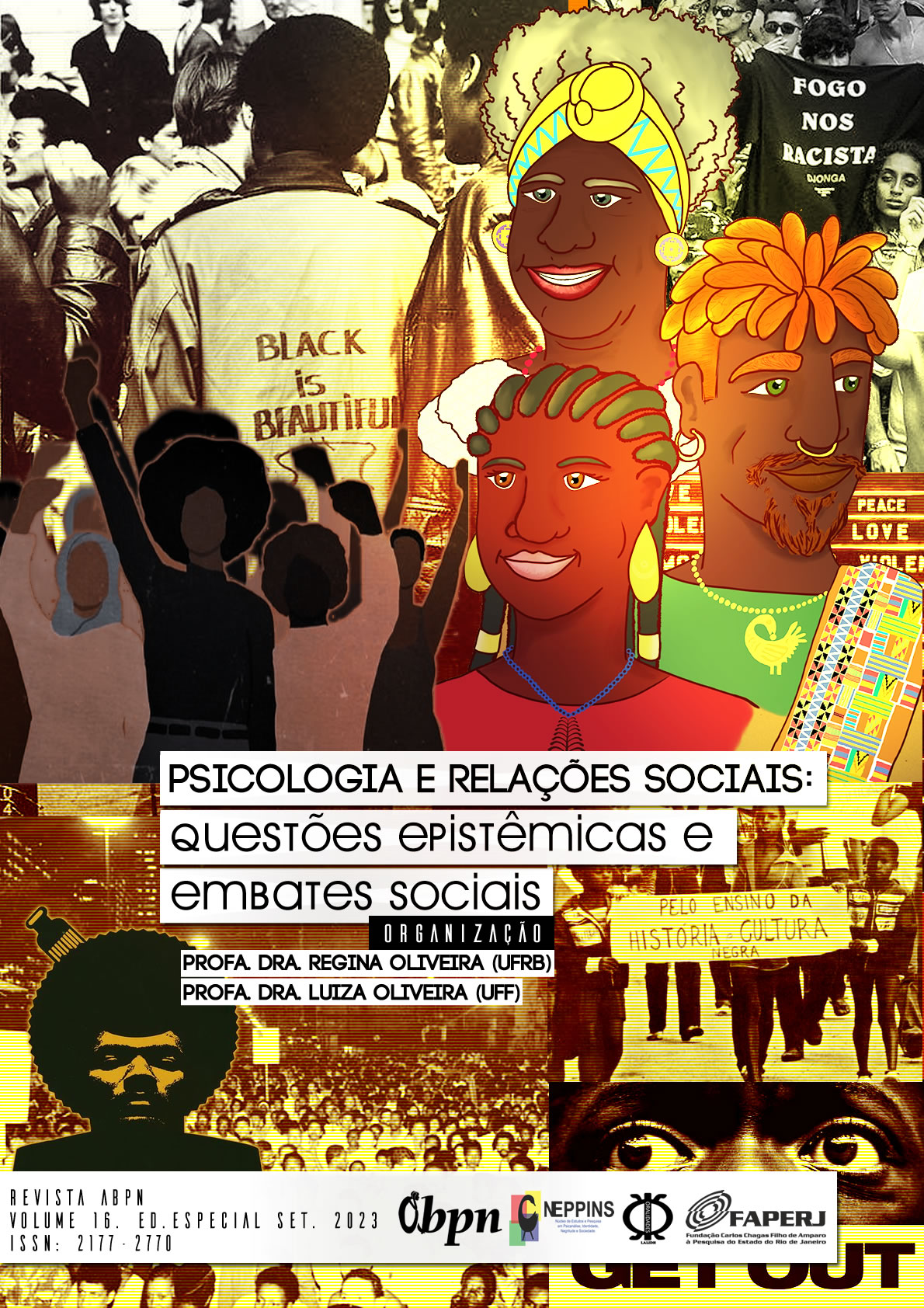INTERSECCIONALIDADE E IDENTIDADE: RAÇA, GÊNERO E SURDEZ PELA AGÊNCIA DE MULHERES NEGRAS
Main Article Content
Abstract
This paper discusses the concept of intersectionality based on the proposition that inscribing gender and disability in race helps us to think about a meaning of becoming black beyond substantiation, affirming the concept of relational identity. The dispute over the concept of identity is one of the biggest clashes in the field of psychology when it comes to thinking about the racialization of anti-black racism and
the agency of black people in Brazil. To do so, we went to meet the black women's movements, which are at the base of the construction and development of intersectionality as a tool of struggle, freedom and disalienation. In this journey, we take as references the works of Neuza Santos Souza, Patricia Hill Collins and Lélia Gonzalez, and also the life story of Rachel, a black, deaf, ex-slave woman, who in 1868, requested enrollment in a special school for deaf people. We conclude that the process of becoming intersectionally takes away the sense of universalization of identity and highlights intersectionality as a tool that helps us in the fight against oppression by recognizing how these forces intersect in the singular and collective lived experience, from the agencies.
Article Details

This work is licensed under a Creative Commons Attribution 4.0 International License.
Copyright Statement
- Authors retain copyright and grant the journal the right of first publication, with work simultaneously licensed under the Creative Commons Attribution License CC-BY 4.0 which allows the sharing of the work with acknowledgment of the authorship of the work and initial publication in this journal.
- Authors are authorized to enter into additional contracts separately for non-exclusive distribution of the version of the work published in this journal (eg, publishing in institutional repository or book chapter), with acknowledgment of authorship and initial publication in this journal.
- Authors are allowed and encouraged to post and distribute their work online (eg in institutional repositories or on their personal page) at any point before or during the editorial process, as this may lead to productive changes as well as increase impact and citation of published work (See The Effect of Free Access).

